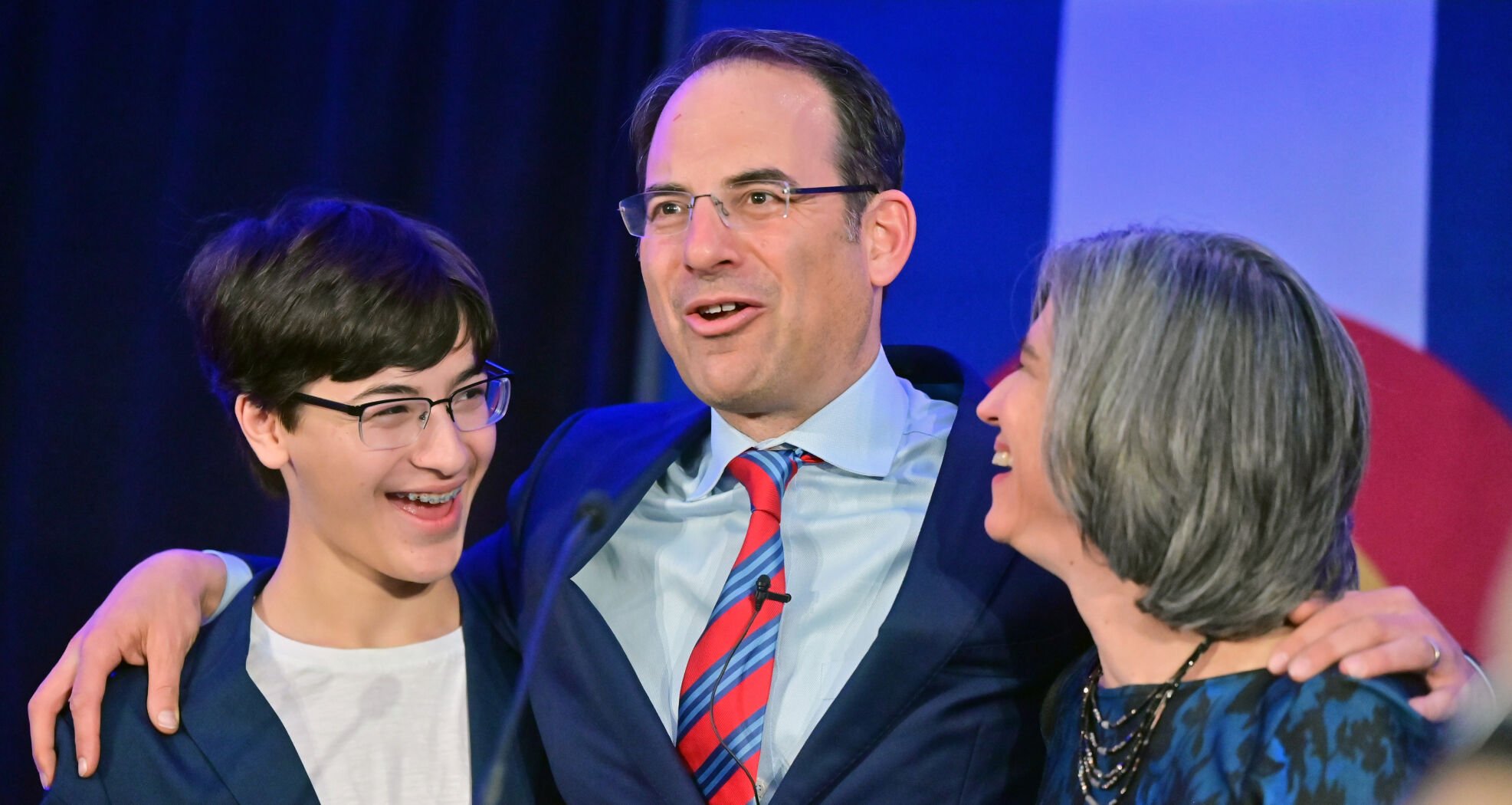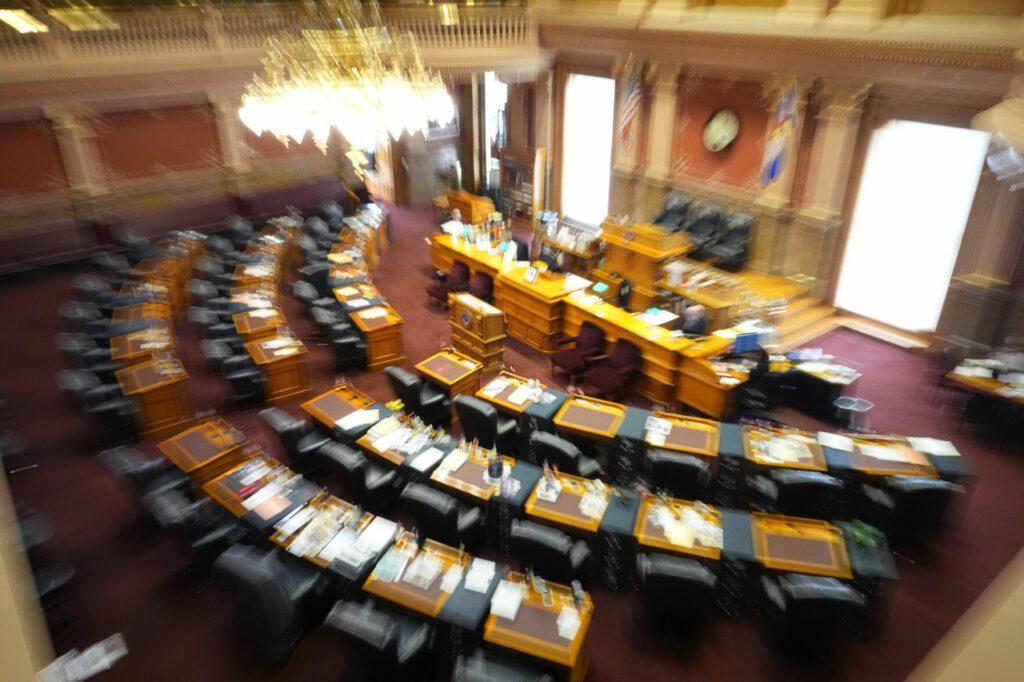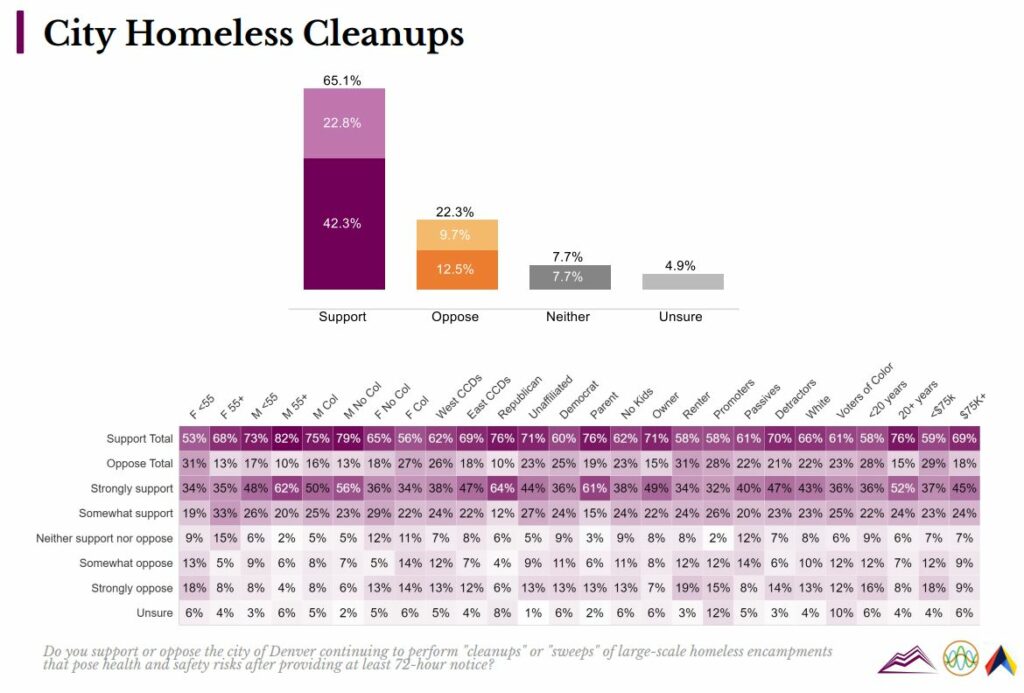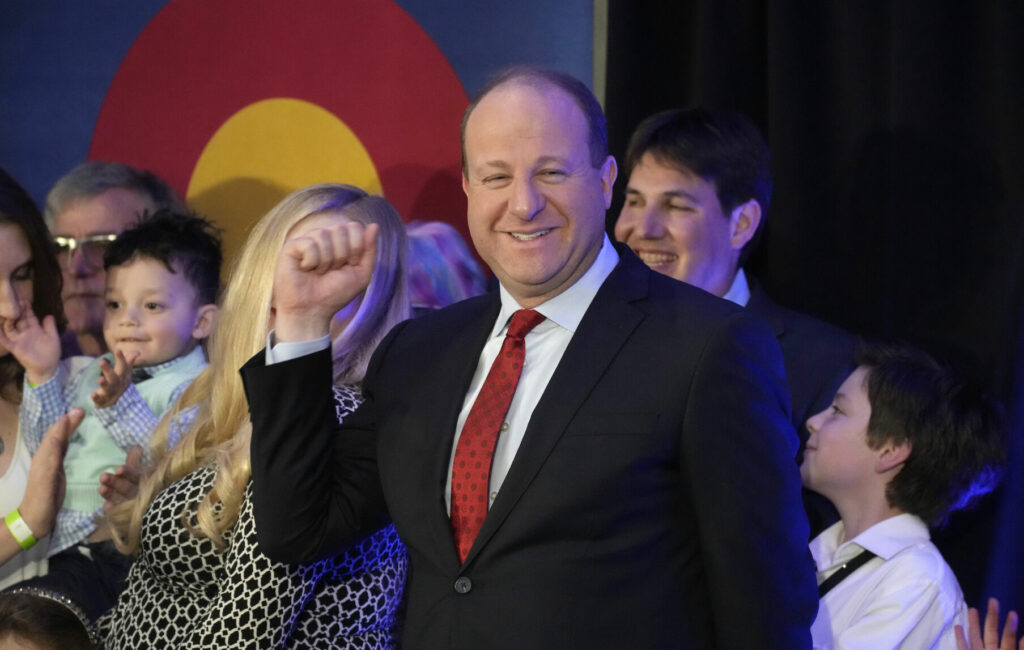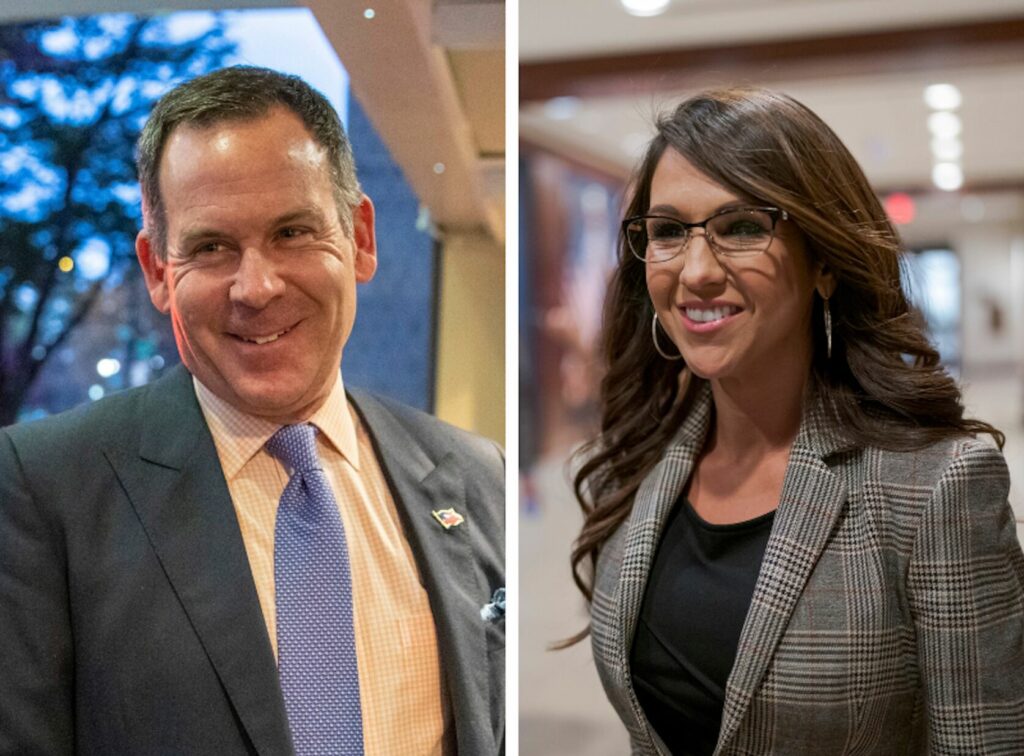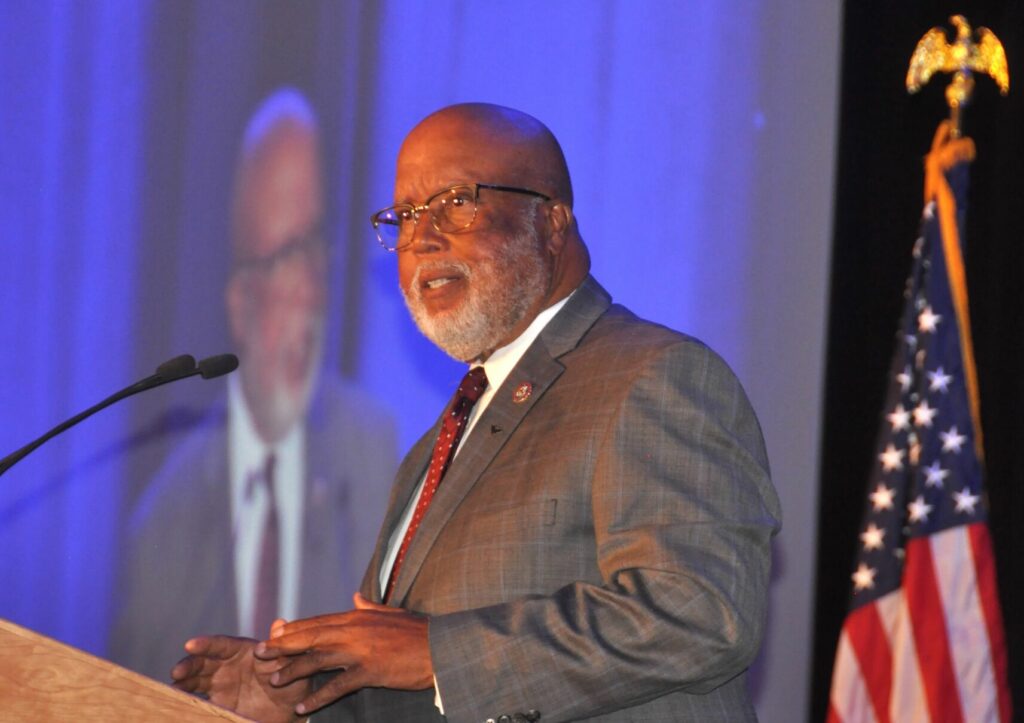Winners, losers abound in aftermath of Colorado vote | ELECTION 2022

Candidates and ballot measures aren’t the only winners and losers in an election. The decisive vote in Colorado on Nov. 8 yielded plenty of both varieties.
As the dust settles from the state’s 2022 general election, some obvious winners and losers have emerged. Here’s a look at a few of them.
WINNERS: Colorado Democrats
LOSER: The Republican brand in Colorado
There’s no getting around it, Colorado is a solid blue state, and it isn’t a close call.
For the third general election running, Democrats posted wins up and down the ballot in every statewide race, something neither party has even come close to accomplishing since the late 19th century. The party’s candidates also expanded their already-historic majorities in the General Assembly and in the state’s congressional delegation.
Democratic incumbents U.S. Sen. Michael Bennet, Gov. Jared Polis, Attorney General Phil Weiser, Secretary of State Jena Griswold and State Treasurer Dave Young all sailed to reelection.
Republicans, meanwhile, won’t be able to count a single elected official in statewide office when this week’s winners are sworn in. Heidi Ganahl, the GOP’s losing gubernatorial nominee and a part-time University of Colorado regent, was the only Republican left, but her term expires later this year at the same time her at-large seat disappears, serving as a perhaps too-on-the-nose metaphor for her party’s predicament.
Before the Democrats’ string of statewide sweeps – in 2018, 2020 and this year – neither party had managed to go more than a single election without Colorado voters at least nudging the other party back into power in the next election. (Democrats carried almost every statewide race in 2016, too, though Ganahl’s win in the regent’s race kept them from running the table.)
Not only is it an unprecedented streak, but the latest installment happened in a midterm election when the Democrats were in control basically everywhere, from the White House to Congress to state government – a perfect storm to spark voter backlash amid persistent inflation and underwater approval ratings for President Joe Biden.
But instead of punishing the party in power, as almost always happens in midterms, Colorado voters instead rejected Republicans everywhere except in the reddest pockets of the state.
WINNERS: Fans of controlled experiments
LOSERS: Both wings of the Colorado GOP
In what effectively amounted to a controlled experiment, Colorado Republicans put two very different kinds of candidates at the top of their statewide ticket this year, creating a chance to test competing theories about which variety of Republican state voters prefer.
For voters concerned that their Republican nominees aren’t Trumpy enough, Ganahl presented the antidote.
Declaring herself “the MAGA candidate Colorado has been waiting for” earlier this summer, Ganahl left no doubt as to which wing of the GOP she considers home by making numerous appearances on former Trump advisor Steve Bannon’s podcast, including on the day before the general election.
Ganahl also hired former Trump operatives Boris Epshteyn and Brad Parscale as campaign advisors and welcomed an 11th-hour endorsement from conservative activist Joe Oltmann, a Douglas County podcaster who last year called for the execution of Polis and other Democrats.
Voters who prefer a more buttoned-down style of Republican – more Eisenhower than Trump – had a clear choice, too, in U.S. Senate nominee Joe O’Dea.
The construction company owner cut a decidedly different path than Ganahl’s, loudly proclaiming his support for abortion rights early in pregnancy and calling himself a centrist willing to buck the party line.
O’Dea even picked a fight with Trump as the election approached, vowing in an appearance on a national news show to “actively campaign against” Trump, should the former president mount another run for the White House in 2024.
The assertion drew a furious response from Trump, who called O’Dea a RINO – short for “Republican in name only” – and urged his supporters not to vote for O’Dea.
“MAGA doesn’t vote for stupid people with big mouths,” Trump wrote in a social media post.
Colorado voters didn’t vote for either sort of Republican, rejecting both the MAGA candidate and the anti-MAGA candidate by wide margins, with Ganahl losing to Polis by 17 points and O’Dea falling 12 points short of Bennet.
In an indication of how sweeping the Democrats’ victory was in Colorado on Nov. 8, Polis’ margin was the largest in a gubernatorial race since 2002, while Bennet’s was the largest in a Colorado Senate contest since 1998. Both earlier results were achieved by Republican incumbents – Gov. Bill Owens and U.S. Sen. Ben Campbell – who cruised to second terms facing nominal opposition.
WINNERS: Colorado pollsters
LOSERS: Trafalgar Group and other GOP polling firms
Even as pollsters faced criticism again this cycle for big misses in prominent races around the country, homegrown firms proved in Colorado races that pollsters can get it right, while a handful of surveys released by out-of-state Republican outfits suggested that not every publicly released poll should be treated the same.
In the run-up to the election, polls released by Colorado firms and organizations came within a few points of predicting the eventual results in the state’s most high-profile races.
Global Strategy Group, a Democratic firm whose Colorado polls are helmed by Andrew Baumann, pegged the contours of the governor’s race a year ago and consistently found nearly the same voter sentiment in subsequent public opinion surveys conducted regularly for ProgressNow Colorado.
An October 2021 Global Strategy Group poll showed Polis leading Ganahl by 17 points, and a poll released by the same firm in February had Polis 17 points ahead of the Republican. So did another GSG poll released in June. By the time Baumann put out the firm’s October poll of likely voters, with a couple of third-party candidates included in the question, Polis was running 18 points ahead of Ganahl – nearly precisely predicting the finish on election night.
A consortium made up of one of Colorado’s leading Democratic polling firms and one of the state’s veteran GOP firms – Keating Research and Magellan Strategies, respectively – yielded nearly identical results in a poll of likely voters conducted in September for the Healthier Colorado organization. In that poll, Polis led Ganahl by 17 points, with two third-party candidates each taking about 1 point, which is how things turned out.
The University of Colorado Boulder’s nonpartisan American Politics Research Lab released its annual Colorado Political Climate Survey last week, showing similar results. Conducted by market research firm YouGov for the political scientists, the poll gave Polis a 16-point lead over Ganahl among likely voters.
The same survey found Bennet beating O’Dea by 14 points – 2 percentage points more than the eventual result – and Griswold leading Republican Pam Anderson in the secretary of state race by 11 points, just 1 percentage point more than the only poll that matters, as political operatives like to say, on Election Day.
Bennet also led O’Dea in a series of GSG polls, though since the Republican didn’t emerge as a likely nominee until this spring, he wasn’t included in the firm’s polling until its June edition. That poll found Bennet ahead by 13 points among registered voters, while the October GSG poll of likely voters put Bennet with an 11-point lead over O’Dea with a third-party candidate included in the question.
The Keating-Magellan poll conducted in September showed Bennet up 10 points over O’Dea.
A spate of polls by GOP firms, however, portrayed significantly closer races for Senate and governor than the Colorado pollsters found.
Most prominently, Trafalgar Group, a national firm that released a spate of polls within weeks of the election in nearly every competitive Senate and governor’s race in the country, found Bennet just 2 points ahead of O’Dea in a poll conducted Oct. 30-Nov. 1, depicting only a slightly tighter race than Trafalgar found in August and September, in two polls that showed Bennet with a 6-point advantage.
Another August poll conducted by the Tarrance Group for the Republican Attorneys General Association had Bennet ahead by 1 point, while a September poll conducted for the GOP’s Senate Opportunity Fund by OnMessage also found Bennet leading by 1 point.
In the governor’s race, Trafalgar showed Polis leading Ganahl by 5 points in August, 9 points in September and 7 points in late October.
